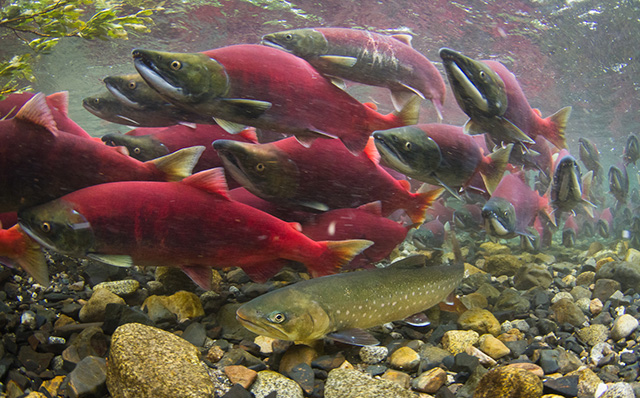Schindler will deliver his presentation, “Science and Advocacy in Environmental Conflicts: a Case Study of the Proposed Pebble Mine and the World’s Greatest Salmon Fishery,” on Wednesday, Oct. 9 at 7 p.m. in the Native Forum, room 162, adjoining HSU’s Behavioral and Social Sciences Building.
The talk marks the inauguration of the Michael G. Scott Distinguished Lecture Series, named after the late HSU fisheries biology alum (‘75) who was a fish biologist in Alaska and a U.S. Forest Service ranger. His father, Cuthbert Scott, established a large endowment in his son’s name to support a long-term distinguished lecture series in fisheries.
Schindler’s lecture is timely because London-based Anglo American, a multinational mining giant with operations on six continents, just pulled out of the Pebble Mine project it had co-owned with Northern Dynasty, a Vancouver-based mineral exploration and development company. The project, some 200 miles southwest of Anchorage and 65 miles from tidewater on Alaska’s Cook Inlet, is aimed at mineral exploration and development in a region of rolling tundra on state lands. Environmentalists charge that open-pit gold and copper mines in Alaska’s Bristol Bay watershed threaten the world’s largest and most valuable sockeye salmon runs, in which Schindler specializes.

The lecture is one of a series of Centennial events in October showcasing Humboldt State’s College of Natural Resources and Sciences.
The college’s celebration kicks off Tuesday evening, Oct. 1 at 7 p.m. in the Van Duzer Theatre with a presentation by renowned Population Bomb author and biologist Paul Ehrlich of Stanford University.
A full roster of the college’s Centennial events and activities in October is posted at humboldt.edu/cnrs.